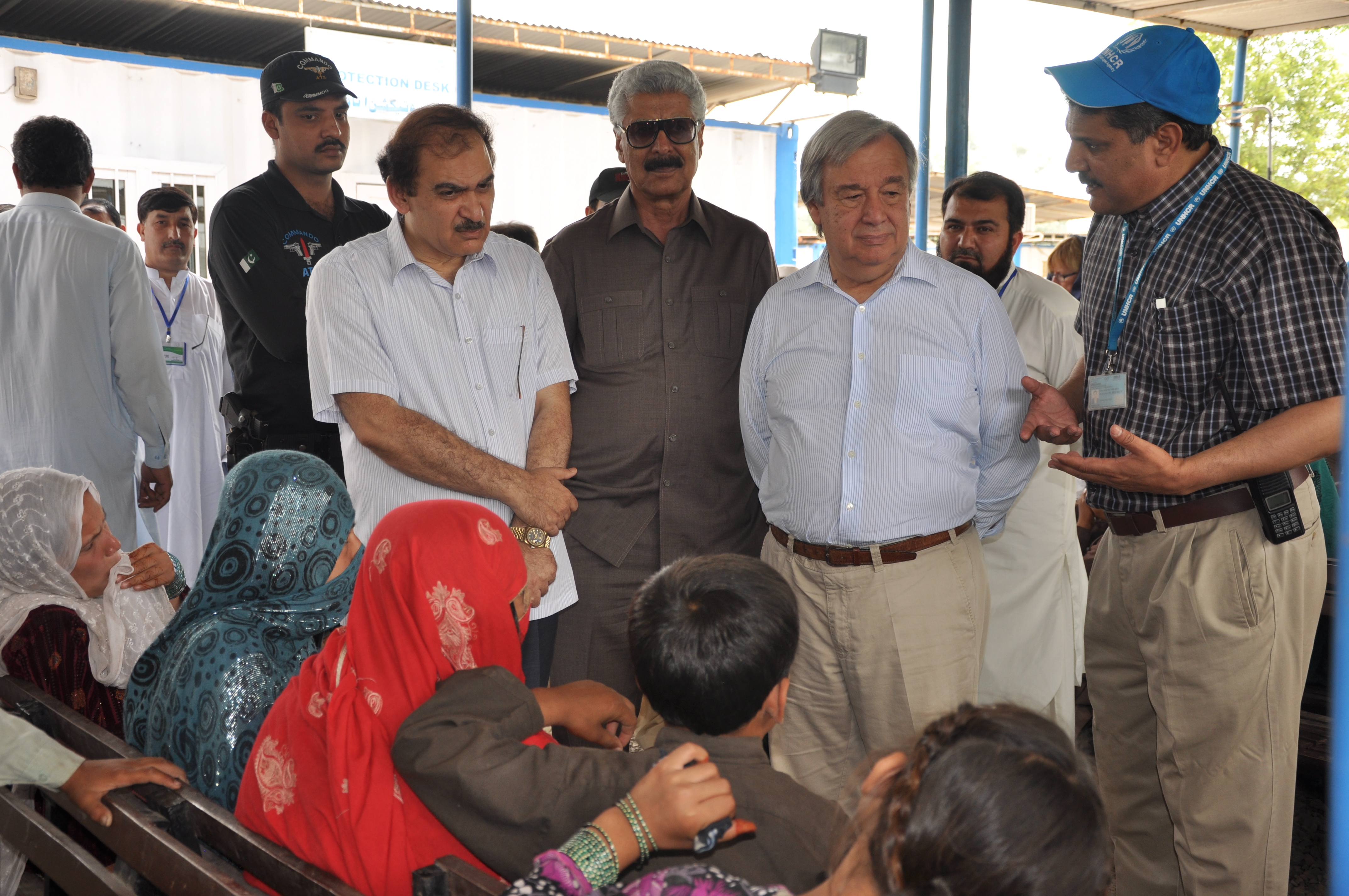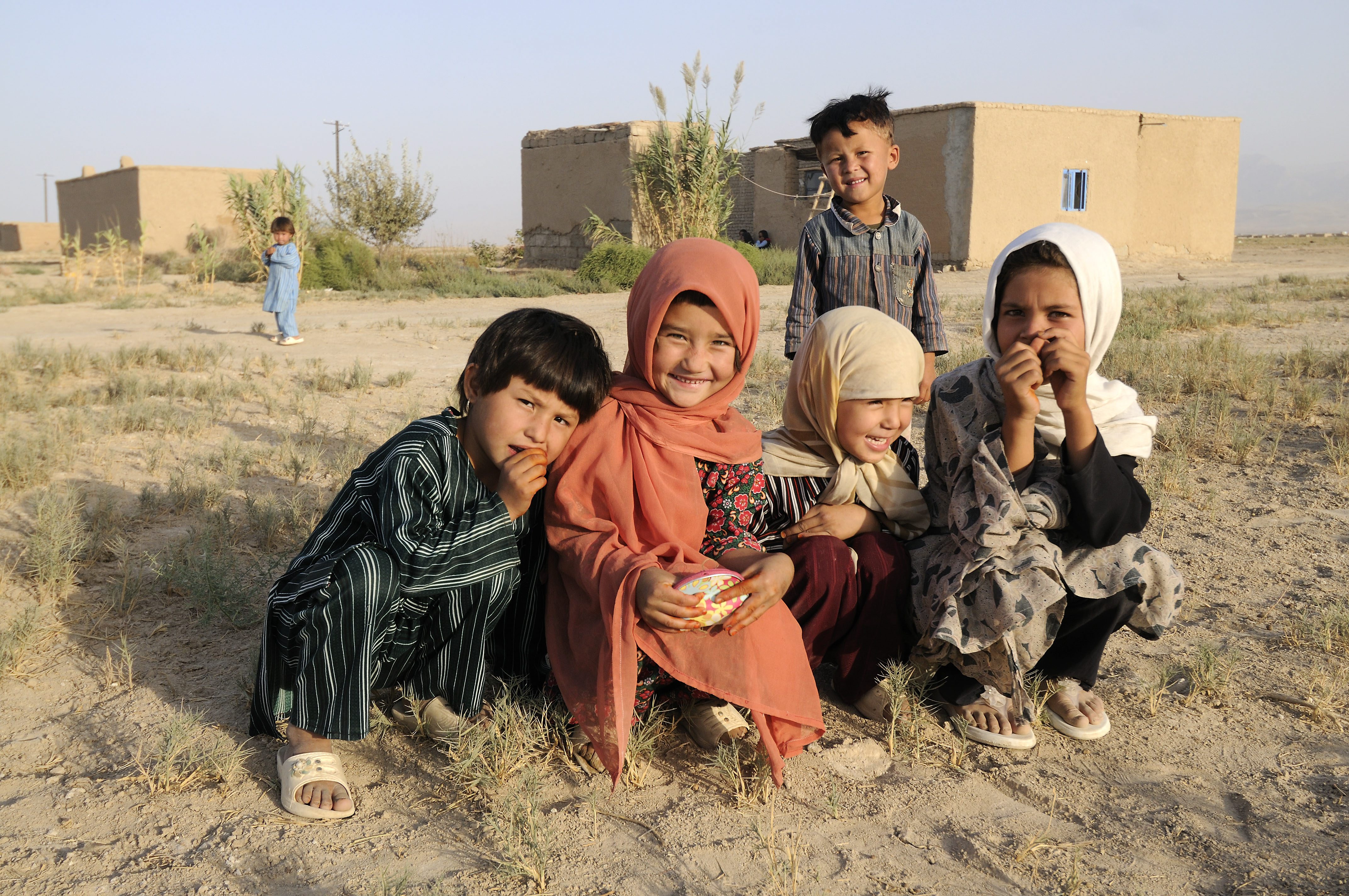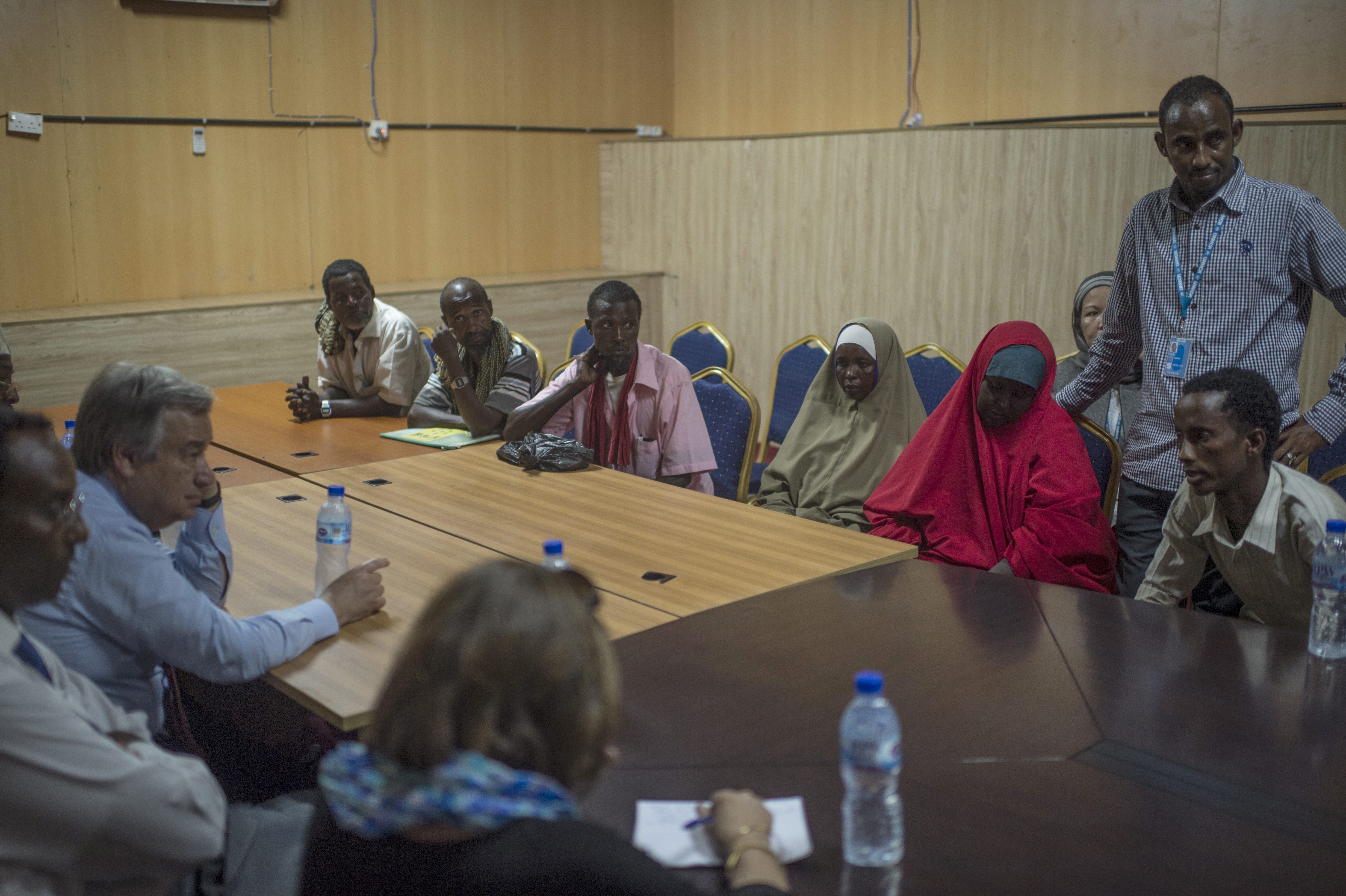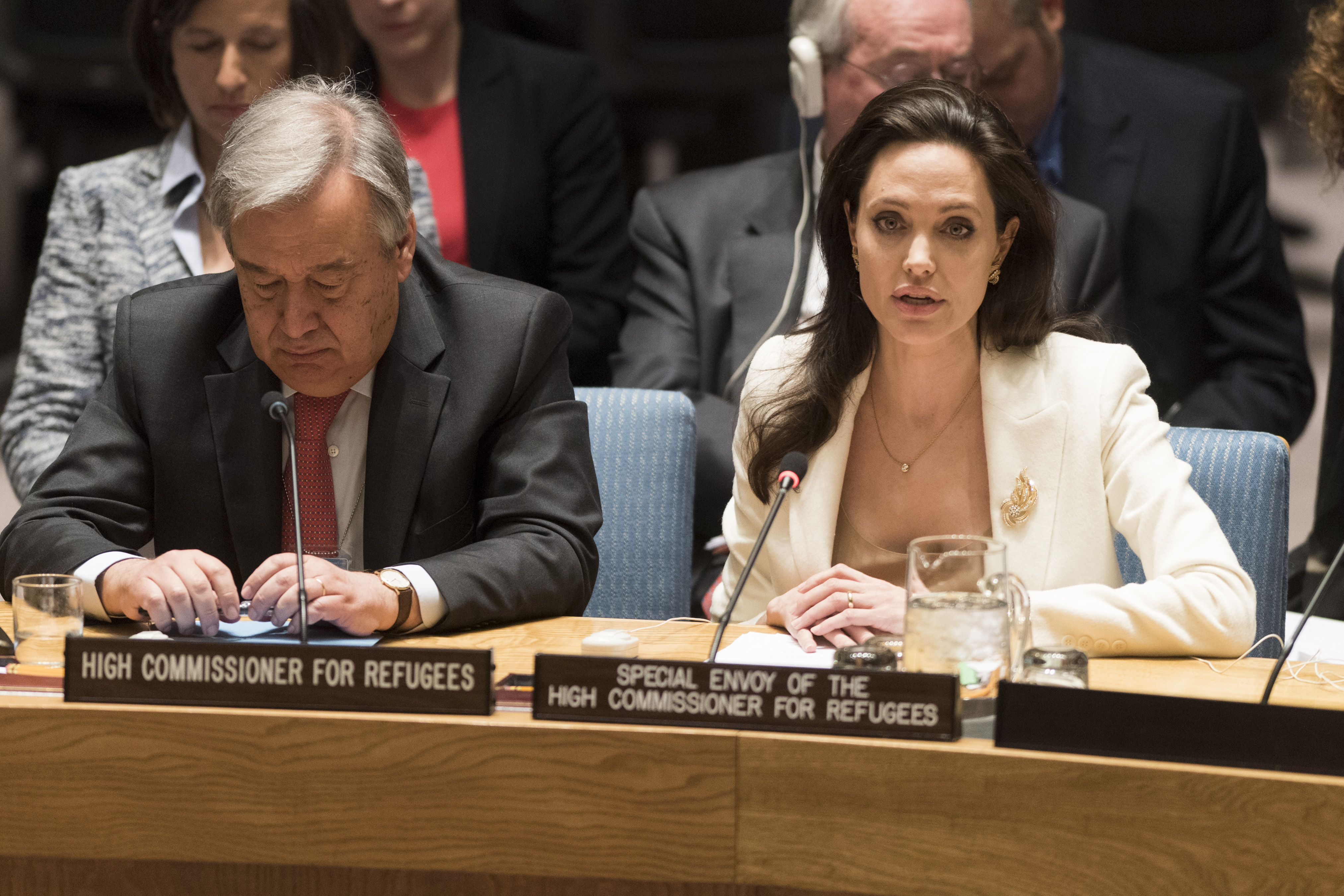High Commissioner's Middle East mission aims to strengthen partnerships with the region
High Commissioner's Middle East mission aims to strengthen partnerships with the region
High Commissioner António Guterres is visiting Qatar, Bahrain and the United Arab Emirates this week following a weekend visit to Baghdad for talks with senior government officials there on ways of strengthening humanitarian support for millions of people uprooted by the conflict in Iraq.
The High Commissioner's visit to the three Gulf States is actually a continuation of his mission to Saudi Arabia and Kuwait in early February and part of a continuing effort by UNHCR to strengthen partnerships with the region, with the Gulf Cooperation Council and with Muslim world in general. Mr. Guterres is briefing senior officials of the three Gulf States on UNHCR's global work as well as his just-concluded mission to Baghdad for discussions on the humanitarian crisis facing millions of uprooted Iraqis. He is also briefing them on the upcoming international conference on Iraqi displacement scheduled for Geneva on April 17-18. Other humanitarian situations are also being raised, including the plight of refugees and displaced people in places such as Somalia, Yemen, Chad and the Darfur region of Sudan.
Mr. Guterres arrived in Bahrain on Monday following a Sunday visit to Qatar. In Bahrain, he is holding meetings with the King and Ministers of Foreign Affairs and Interior before departing this evening for the United Arab Emirates where he will meet with the President, Prime Minister and Ministers of Foreign Affairs and Interior tomorrow and Thursday.
Before resuming his Gulf mission, Guterres flew to Baghdad on Friday for two days of talks with government leaders, including President Jalal Talabani, Vice-President Tarik Al Hashemi, Prime Minister Nouri Al Maliki, Foreign Minister Hoshyar Zebari, Interior Minister Jawad Al-Bollani and Minister of Displacement and Migration Abdul-Samad Rahman Sultan. He also held extensive discussions with Ashraf Qazi, the special representative of the UN Secretary-General in Iraq.
Describing the displacement of nearly 4 million people in Iraq and neighbouring countries as a humanitarian crisis, the High Commissioner announced that, following consultations with Iraqi leaders, UNHCR would strengthen its international presence in Baghdad and increase its activities in the country.
UNHCR currently has seven offices in Iraq carrying out humanitarian programmes for refugees from elsewhere as well as tens of thousands of internally displaced Iraqis. Internal displacement caused by growing sectarian violence has worsened considerably over the past year, with an estimated 727,000 people fleeing their homes since the beginning of 2006. The refugee agency's work inside Iraq is primarily carried out by national staff members.
In his discussions with Iraqi leaders, Guterres emphasised that it was essential that the government in Baghdad lead an international effort to ease the plight of uprooted Iraqis. An estimated 1.9 million people are displaced internally within Iraq, and another 2 million have sought refuge in nearby countries, primarily in Syria (1.2 million) and Jordan (750,000). The huge number of Iraqi refugees has put enormous strain on countries in the region, particularly Syria and Jordan
Guterres briefed the Iraqi leaders on next month's Geneva conference and said the Iraqi government's commitment and leadership will be vital to the success of the meeting and to the overall international effort to ease the suffering of Iraqi refugees and internally displaced. He said the clear engagement of the Iraqi government in support of its own citizens struggling in exile in neighbouring countries is a vital element not only in alleviating their plight, but as an instrument to reinforce the links between Iraqi refugees and their homeland and in preparing for their voluntary return when conditions allow.
The High Commissioner also sought government help in ensuring the protection of more than 44,000 refugees inside Iraq, including some 15,000 Palestinians. The Palestinians, in particular, have been the targets of continuing violence.







